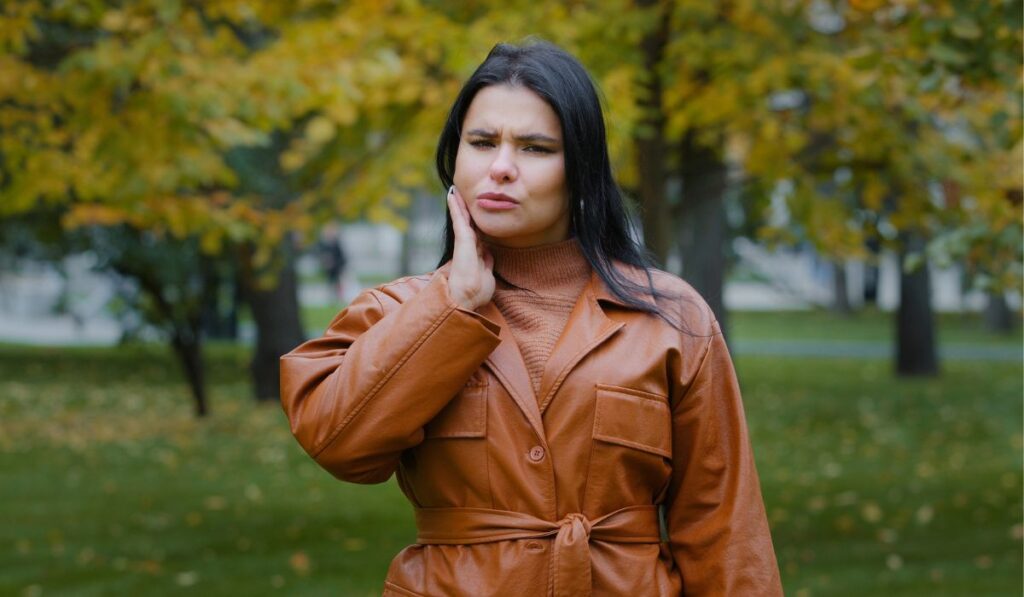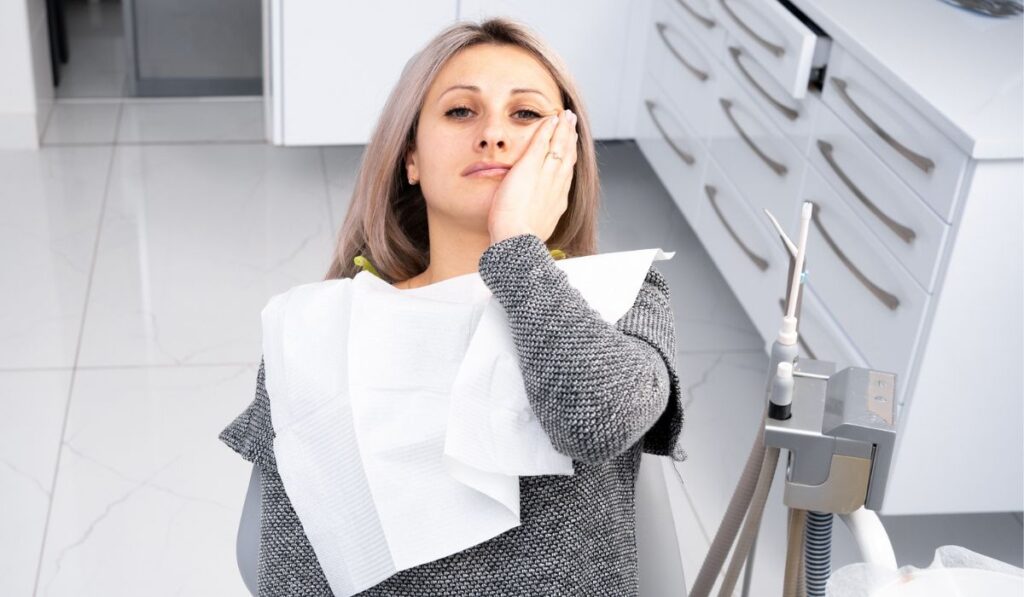Many people enjoy a drink or two will dinner or when they’re out partying with friends. But some people experience jaw pain while consuming alcoholic drinks. So, what causes this jaw pain?
Alcohol disrupts the balance of vitamins and minerals in your body, which can exacerbate the symptoms of dental conditions like temporomandibular disorders (TMD). This can result in jaw pain and other side effects. Mild jaw pain can also be caused by a reaction of the salivary gland to sour drinks.
Jaw pain while drinking is usually nothing to worry about. But what exactly is TMD, and why do you experience jaw pain while drinking? How do you know if you need to see a doctor? Let’s take a look at everything you need to know.
Why Does Alcohol Make Your Jaw Hurt?

If you experience mild pain or a tingling effect after consuming alcohol, it’s usually caused by a natural reaction of the salivary glands to the sour taste of the liquor or wine. This isn’t typically a big problem, as your salivary glands will start producing normal amounts of saliva after some time.
However, if you experience significant jaw pain whenever you consume alcohol, it may be due to temporomandibular joint disorders (TMD) or other dental problems.
Let’s explore these causes in more detail:
Temporomandibular Disorders
TMD disorders affect your jaw and connecting ligaments. If you have TMD, you’ll likely experience jaw pain, headaches, ear pain, and facial pain. Consuming alcohol can make these symptoms worse.
While TMD is pretty common, its severity depends on the underlying cause, which could be any of the following:
- Natural wear and tear of your teeth over time
- Arthritis
- Mental or physical trauma
- Malocclusion, or misaligned teeth, which results in an improper bite
When you drink alcohol, the symptoms of TMD may become worse since the alcohol alters the natural balance of hormones, vitamins, and minerals in your body. This may cause nerve damage over time, resulting in mild to severe jaw pain every time you consume alcohol.
If you have dental problems that may be causing jaw pain, then alcohol will only accelerate the decay process. Alcohol is often rich in sugars, which may promote bacteria that cause tooth decay. If you already have a dental problem, consuming alcohol regularly can have the same effect as sugary foods.
Along with this, you’ll have to deal with the bad breath that you get after a drink!
People with TMD may also suffer from allergic reactions to alcoholic beverages. If you experience nausea, dizziness, face swelling, or itchiness after consuming alcohol, you may have an allergic reaction, and your jaw pain will get worse.
So, if you’re suffering from TMD, you’ll have to reduce your alcohol consumption and treat the underlying medical condition.
Salivary Gland Reaction
If you experience mild pain or a tingling sensation in your jaw after drinking alcohol, it may be due to a salivary gland reaction. Fortunately, this is very common and nothing to worry about, even though you may have to bear mild pain for a while.
When you consume alcohol, the acids and sugars in the beverage may cause your salivary glands to produce more saliva than usual. This will result in a tingling sensation in your jaw and is similar to how your jaw may feel when eating certain sour foods.
Alcoholic drinks with more sourness are more likely to activate the salivary glands, so try changing your preferred drink if you experience jaw pain.
Fortunately, your saliva glands will get used to the sourness after a while, and the pain will disappear.
When to See a Doctor

You don’t have to see a doctor if the pain is mild or you only get a tingling sensation in your jaw when drinking alcohol. However, if you experience severe pain and the symptoms persist even when you don’t drink alcohol, then you should see a doctor or dentist.
You should get professional help if you experience any of the following:
- The jaw pain persists even when you don’t drink alcohol.
- You experience dizziness, nausea, itchiness, or other signs of an allergic reaction when consuming alcohol.
- You experience pain in your teeth as well as the jaw. This may be caused by a damaged tooth nerve, so it’s important to book a dental appointment.


